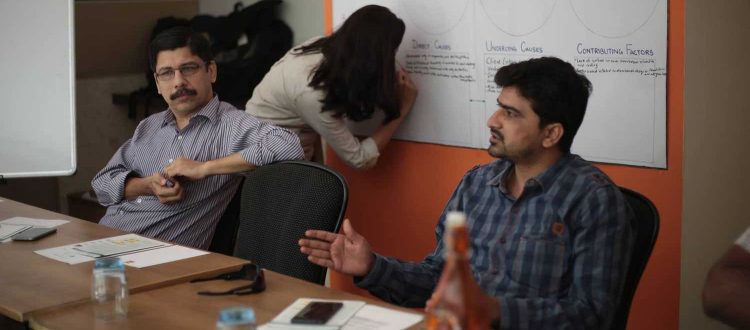Overview
The Fairconditioning programme consists of four unique projects designed to involve key stakeholders identified as having a high influence on energy efficiency gains.Fairconditioning is a Building-Cooling Demand-Side-Management (DSM) related education, capacity building, and pilot implementation programme.
It is designed as an evidence-based policy support programme that seeks to create a critical mass of evidence for programmes that could be scaled-up across India and other tropical climates to achieve behaviour change amongst occupants of conditioned indoor spaces, reduce building heat loads (cooling demands), reduce energy and GHG intensity of artificial cooling systems.
It focuses on achieving indoor thermal comfort, in tropical climates, while reducing or avoiding conventional air-conditioning in order to reduce energy demand, and thereby improve energy access and lower GHG emissions. The program articulates a three-iii approach for transforming the cooling of interiors in tropical climates: improving energy-efficiency (EE) in the continuing building boom, integrating the most energy efficient-technologies to address cooling load in buildings, and, influencing corporate consumer behaviour.

In operation since October 2012, the program is organized into four sub-projects that focus on education (Academic Curricula Integration Project, ACIP), capacity building (Professional Ecosystem Support Project, PESP), corporate technology adoption (Sustainable Cooling Adopters Network, SCAN), and corporate behaviour change (Corporate Thermal Comfort Policies Campaign Project, UpBy2) with the legacy of establishing a sustainable cooling eco-system and driving evidence-based policy-change. This policy change will be created through distilling field experiences, over the program period, to establish a critical mass of evidence for additional programs that could be scaled-up across other tropical climates to achieve behaviour change amongst occupants of conditioned indoor spaces, reduce building heat loads (cooling demands), and reduce energy and GHG intensity of artificial cooling systems.
Learn about ACIP Learn about PESP Learn about SCAN
